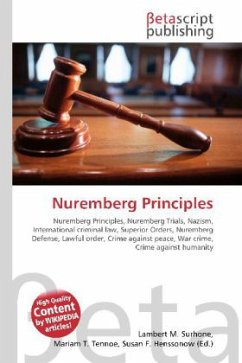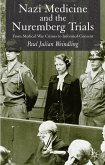Please note that the content of this book primarily consists of articles available from Wikipedia or other free sources online.The Nuremberg Principles were a set of guidelines for determining what constitutes a war crime. The document was created by the International Law Commission of the United Nations to recognize the legal principles underlying the Nuremberg Trials of Nazi party members following World War II. In the period just prior to the June 26, 1945 signing of the Charter of the United Nations, the Governments participating in its drafting were opposed to conferring on the United Nations legislative power to enact binding rules of international law. As a corollary, they also rejected proposals to confer on the General Assembly the power to impose certain general conventions on States by some form of majority vote. There was, however, strong support for conferring on the General Assembly the more limited powers of study and recommendation, which led to the adoption of Article 13 in Chapter IV of the Charter. It obliges the United Nations General Assembly to initiate studies and to make recommendations that encourage the progressive development of international law and its codification. The Nuremberg Principles were developed by UN organs under that limited mandate.
Bitte wählen Sie Ihr Anliegen aus.
Rechnungen
Retourenschein anfordern
Bestellstatus
Storno








